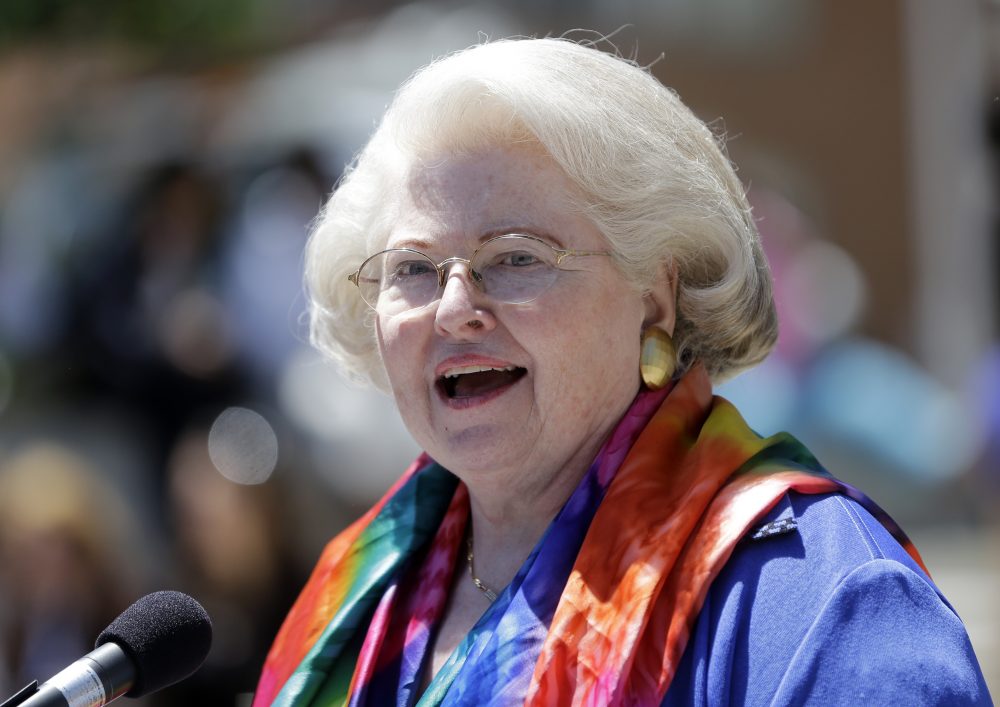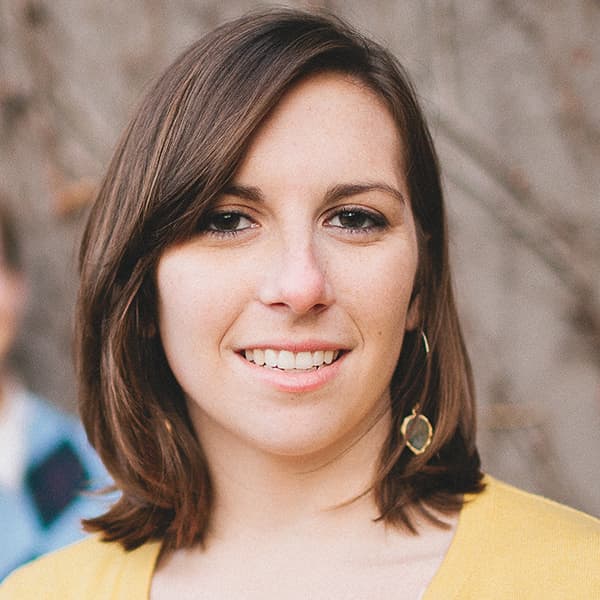Advertisement
Roe V. Wade Lawyer On The Ongoing Debate Over Abortion
Resume
On Oct. 11, 1972, U.S. Supreme Court Chief Justice Warren Burger introduced oral argument in one of the most consequential, and controversial, cases in American history: Roe v. Wade.
Arguing for legalization of abortion rights, and on behalf of Jane Roe, was Texas attorney Sarah Weddington. She was 26 years old.
At the time, a Texas statute held that all abortions were illegal, except those performed to save the life of the woman. Weddington argued that was unconstitutional.
"We do not ask this Court to rule that abortion is good or desirable in any particular situation," she told the court. "We are here to advocate that the decision as to whether or not a particular woman will continue to carry or will terminate a pregnancy is a decision that should be made by that individual. That, in fact, she has a constitutional right to make that decision for herself."
On Jan. 22, 1973, the court issued its opinion. Seven of the justices agreed with Weddington, a decision that legalized abortion across the country.
The fight over abortion never ended, of course. Forty-four years later, Roe v. Wade is one of the most simultaneously celebrated and reviled cases in U.S. history.
It also defined Weddington's life and career. She was honored by Harvard Law School this week, in conjunction with International Women's Day.
Guest
Sarah Weddington, Texas attorney who successfully argued Roe v. Wade before the U.S. Supreme Court. Former Texas state representative and founder of The Weddington Center.
Interview Highlights
On the legal basis on which she challenged abortion restrictions
"There had been one prior case that was Griswold v. Connecticut. It was a case really about contraception — where contraception was illegal. And a woman named Estelle Griswold, who was the director of the New Haven Planned Parenthood, and her doctor a man named Lee Buxton, had given a contraceptive device as it's described in the case to a married couple. They were arrested prosecuted and convicted of giving contraception, which was illegal.
So they filed suit against that and they won their case based on the 14th Amendment, which was privacy, that a woman has a right of privacy to decide for herself whether to continue or terminate a pregnancy. And so that was the basic thing we argued. But to tell you the truth, we also argued the first, the fourth, the fifth, the eighth, the ninth, and the 14th amendments. And in the Supreme Court hearing one of the judges said, 'In other words Ms. Weddington, anywhere we'll find it is OK with you.' And I said, 'Yes sir." But I thought the right of privacy would be the one.'
Blackmun was the person who wrote the opinion. He had been the legal counsel for Mayo Clinic before he went on the bench. And so he was particularly concerned about doctors, the impact of these laws on doctors, and then doctors talked to him at Mayo Clinic about the tragedies that happened because of the laws. Because laws against abortion don't end abortion, or keep them from happening. They just make them much more dangerous."
On her own abortion
"While I was in law school I was dating a man Ron Weddington and became pregnant. And so I had to finish law school. I had to put him through law school. I had lots to do and I just could not stop to have a pregnancy at that point. So Ron asked somebody who knew somebody who knew a name in Mexico. I remember those $400 I had to give him. And we drove to Mexico found this office. I can still remember thinking, 'I hope I don't die.' And even more than that: 'I hope no one ever finds out about this.' You know I look back now, it was so scary at the time. But I was back and at work and in school Monday morning."
On her reaction when she found out about the decision of Roe v. Wade
"The phone rang and an assistant answered it and it was a reporter from The New York Times and that reporter said, 'Does Miss Weddington have a comment today about Roe versus Wade?' The assistant who answered the phone said, 'Should she?' And the reporter said, 'It was decided today.' And the assistant said, 'How was it decided?' And the reporter said 'She won it 7-2.' And that was so exciting.
Except just knowing I won but not knowing what the opinion said, what the grounds were. I couldn't really talk to the press much because I just said 'Oh I'm so excited.' But on what basis was this? So I called a friend in Washington, said 'Go to the court, get a copy of the opinion read it. Call me back tell me what it says.' And she did so then the next day I started making comments."
On Jane Roe aka Norma McCorvey's now opposition to abortion
"I really respected her for a long time because I had explained to her that pregnancies didn't take as long as cases did and we would try to do the case as fast as we could and get a decision. But it was unlikely we would get it in time for her to have an abortion. And so we were very careful to explain those things. But the fact that she seemed to have thought now that I should tell her where an abortion was, which was illegal, and probably pay for it because she didn't have any money — no, I'm not going to tell my clients to go do illegal things."
On if she's concerned that Roe could be overturned
"I'm worried about that. And partly because Ruth Bader Ginsburg, who's one of the advocates for women being able to make their own decisions, is 83. Another couple of the judges who are late 70s. One judge I'm concerned about, but not frantic about, whereas if you ended up with several new judges then that really concerns me, because if you look at who would be appointing them, who would be confirming them, we could have a situation where we might not be able to keep a majority.
On how she responds to people who are against abortion
"First, I think it's a question of who gets to make the decision. Because if you, again like I said in the oral argument, if you look at the Constitution it and even the Bible talks about when the first breath is taken — not when conception occurs. So I respect that there are some people who have that. You know once conception occurs, that's it. But I still think it comes down to who gets to make that decision. And I just don't think it could be the government."
This segment aired on March 9, 2017.

